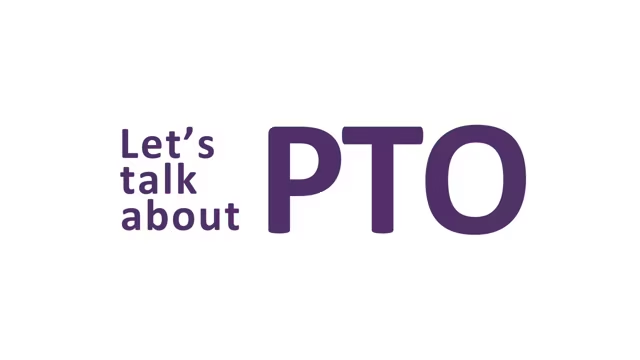Are you struggling to find a balance between your work and personal life? It’s a common challenge in today’s fast-paced world, but there is a solution that is gaining popularity among employers – the rise of flexible PTO options. In this article, we will explore why achieving work-life balance is so important and how traditional PTO policies can often fall short of meeting employee needs. We will then delve into the benefits of flexible PTO and how it can significantly improve your overall well-being.
Finding the right balance between work and life is crucial for your mental health, relationships, and overall happiness. Too much time spent at work can lead to burnout and increased stress levels, while neglecting personal obligations can strain relationships and leave you feeling unfulfilled. This is where flexible PTO comes in – it offers employees the freedom to take time off when they need it without strict limitations or penalties.
Whether you want to spend quality time with your family, pursue personal hobbies, or simply recharge your batteries, flexible PTO allows you to do so without sacrificing your professional responsibilities. With its rising popularity among organizations of all sizes, the future of work-life balance seems to be embracing flexibility as an essential component for employee satisfaction and well-being.
The Importance Of Work-Life Balance

You know that feeling of being pulled in every direction like you’re juggling flaming torches while walking on a tightrope? Well, finding the right work-life balance is like discovering the perfect harmony between those two worlds. It’s about creating a lifestyle where your professional and personal life coexist peacefully, allowing you to excel at both without sacrificing your well-being. Work-life balance is not just a luxury; it’s essential for your mental and physical health.
When you have a balanced work-life equation, you feel more fulfilled and satisfied with both aspects of your life. You are able to dedicate quality time to your family and loved ones, pursue hobbies and interests outside of work, and take care of yourself. Having this equilibrium reduces stress levels, prevents burnout, and improves overall productivity. By prioritizing self-care and setting boundaries between work and personal life, you can achieve that elusive balance that allows you to thrive in all areas of your life.
Traditional PTO Policies And Limitations
Conventional time-off policies often come with numerous restrictions and limitations that can hinder you from achieving a healthy work-life equilibrium. These traditional PTO policies, although well-intentioned, are often rigid and fail to cater to the individual needs of employees. Here are three common limitations that you may have encountered:
- Accrual-based system: Many companies follow an accrual-based system where employees earn PTO days gradually over time. This means that you need to work for a specific period before being eligible for taking time off. While this approach ensures fairness, it may restrict your ability to take vacations or attend important personal events when you desire.
- Limited carryover: Some organizations limit the number of unused PTO days that you can carry over to the next year or completely forfeit them if not utilized within a specified period. This policy can create pressure on employees to use their time off even when they might not necessarily need it, leading to situations where they end up working excessively without reaping the benefits of their accrued leave.
- Lack of flexibility: Traditional PTO policies often offer limited flexibility in terms of how and when you can utilize your time off. It may require extensive planning in advance and obtaining approval from managers, which could become a barrier when trying to balance unexpected personal commitments with your work responsibilities.
These limitations highlight why many companies are now embracing flexible paid time off (PTO) options as a more conducive approach towards achieving work-life balance.
The Benefits Of Flexible PTO
Embracing a more adaptable time-off policy allows for greater freedom and exploration in managing personal and professional commitments. With flexible PTO, you have the ability to determine when and how you take time off, giving you the power to prioritize both your work and personal life. This can lead to increased productivity, as you are able to recharge and rejuvenate when needed without feeling restricted by rigid vacation policies.
Additionally, flexible PTO provides a sense of trust between employers and employees. By allowing individuals to manage their own time off, it shows that their employer values their well-being and understands the importance of work-life balance. This can result in higher job satisfaction, improved morale, and decreased burnout among employees.
To illustrate the benefits of flexible PTO further, consider the following table:
| Traditional PTO Policy | Flexible PTO Policy |
| Limited number of vacation days per year | No set limit on vacation days |
| Strict approval process for time off | Self-managed time off with minimal approval required |
| Use-it-or-lose-it policy where unused days expire | Ability to roll over unused vacation days into the next year |
| Fixed schedule for vacations throughout the year | Freedom to plan vacations based on personal needs or opportunities |
As you can see from this comparison, flexible PTO offers more autonomy and flexibility in managing your time off compared to traditional policies. It empowers you to make decisions that align with your individual circumstances and priorities while still fulfilling your professional responsibilities.
How Flexible PTO Improves Employee Well-Being
Flexible PTO allows you to prioritize your personal well-being and enjoy a healthier work-life harmony. With the option to take time off when you need it, you can better manage stress levels and prevent burnout. Here are some ways in which flexible PTO improves employee well-being:
- Reduced stress: Taking time off whenever necessary helps reduce stress levels and allows you to recharge. Whether it’s taking a day off to relax or going on a longer vacation, flexible PTO gives you the freedom to prioritize self-care.
- Enhanced work-life balance: Flexible PTO enables you to strike a better balance between your professional and personal life. It means not having to sacrifice important family events or personal commitments for work obligations.
By offering flexible PTO options, companies show their commitment towards prioritizing employee well-being. This approach recognizes that employees are more productive and engaged when they have the flexibility to take care of themselves both inside and outside of work. So, take advantage of this valuable benefit and ensure that you make time for yourself – because your well-being matters!
The Future Of Work-Life Balance: Embracing Flexibility

The evolving landscape of work and personal commitments calls for a new approach to finding harmony between our professional and personal lives. In today’s fast-paced world, the traditional nine-to-five work schedule no longer fits everyone’s needs. Employees are seeking more flexibility in their work arrangements to accommodate their individual lifestyles and responsibilities outside of the office. This shift has led many companies to embrace flexible work-life balance options, including flexible paid time off (PTO).
Embracing flexibility when it comes to work-life balance not only benefits employees but also contributes to a happier and more productive workforce. By allowing employees to have more control over their schedules, companies foster an environment that promotes overall well-being. Flexible PTO solutions allow individuals to take time off when they need it most – whether it be for family events, personal appointments, or simply taking a mental health day. This increased autonomy can reduce stress levels, improve job satisfaction, and enhance employee retention rates. As we move forward into the future of work-life balance, embracing flexibility through initiatives like flexible PTO will become increasingly important in creating a harmonious blend between our professional and personal lives.
Conclusion
In conclusion, the rise of flexible PTO options is revolutionizing the way we approach work-life balance. With traditional PTO policies and limitations becoming outdated, companies are recognizing the need for more flexibility in order to meet the diverse needs of their employees. By implementing flexible PTO, organizations can improve employee well-being and overall satisfaction.
Flexible PTO allows individuals to have greater control over their time off, giving them the ability to attend to personal matters without sacrificing their professional responsibilities. This not only helps reduce stress and burnout among employees but also promotes a healthier work-life integration. As a result, companies that embrace flexible PTO are likely to see increased productivity and higher retention rates as employees feel valued and supported in achieving their work-life balance goals.
Moving forward, it is clear that embracing flexibility in work-life balance will be essential for organizations seeking to attract and retain top talent. The future of work is evolving rapidly, and companies must adapt by offering innovative solutions like flexible PTO. By prioritizing employee well-being and providing them with the autonomy they need to manage both their personal and professional lives effectively, organizations can create a positive workplace culture that fosters growth, productivity, and success for all.




























